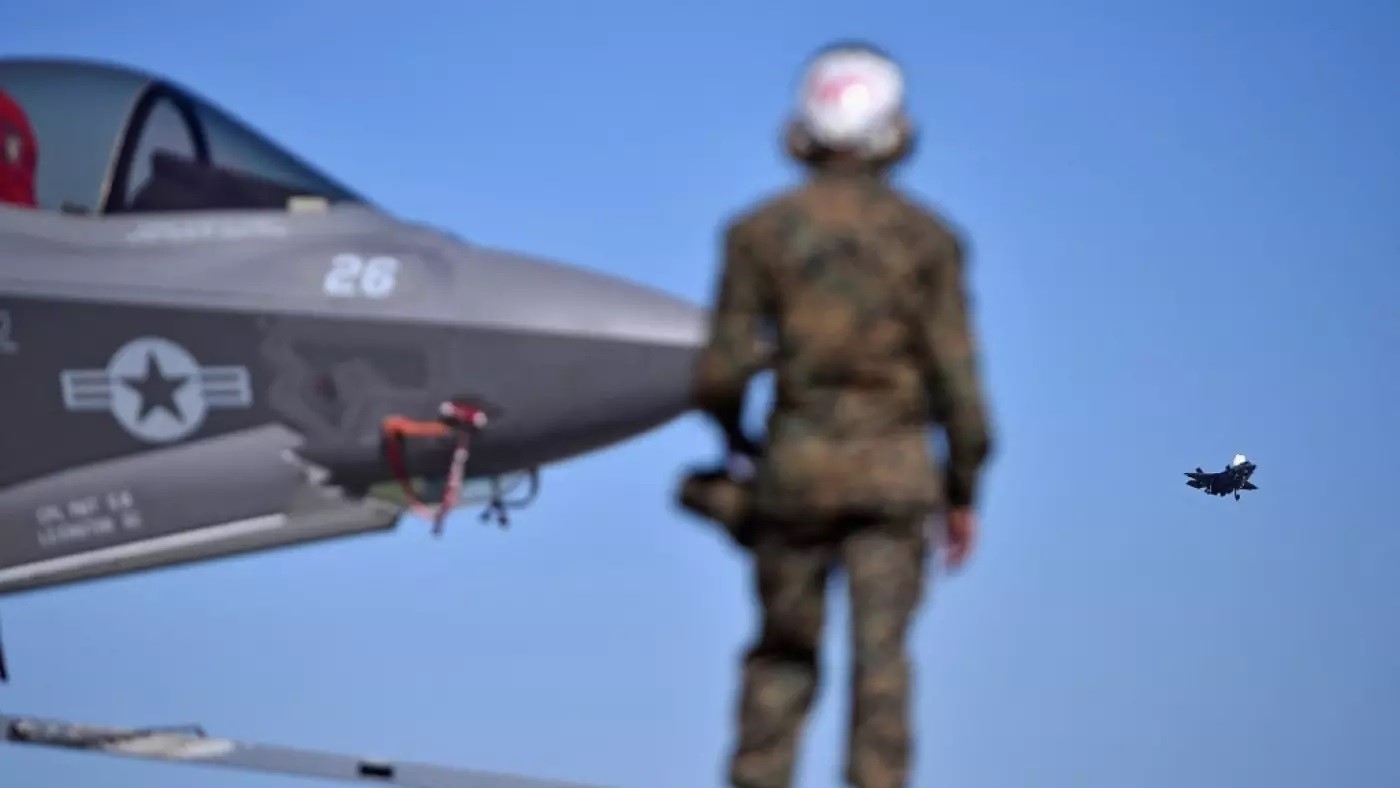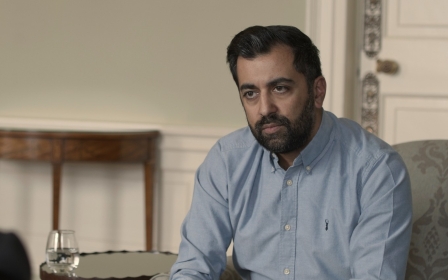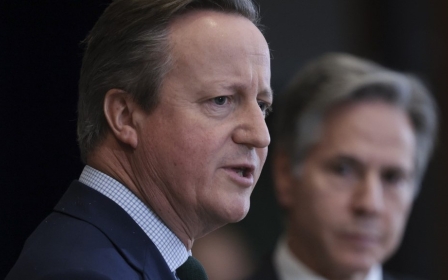UK won't say if arms export licences to Israel flagged over concerns were revoked

The UK government won't say whether it has revoked licences for the export of arms to Israel flagged in an internal review as “most likely” to be used by the Israeli army in its Gaza offensive.
The Department for Business and Trade also declined to say if UK companies holding those licences had actually sent any items to Israel, including components for combat aircraft, since the Hamas-led attacks on 7 October.
Department officials said they could not provide information on individual licences or applications to be able to answer MEE's questions, and that they don't publish detailed information about actual exports that are sent.
Concerns over the licences were first raised by a coalition of NGOs who called on the UK government last week to explain how it knows that British-made weapons have not been delivered to Israel in the past five months.
The groups said the lack of answers this week once again leaves the public in the dark about the role that UK-made arms may be playing in the war in Gaza.
New MEE newsletter: Jerusalem Dispatch
Sign up to get the latest insights and analysis on Israel-Palestine, alongside Turkey Unpacked and other MEE newsletters
"For the past five months, we have been consistently stonewalled by government when it comes to information in the public interest about UK arms exports licences to Israel," said Katie Fallon, advocacy manager for the Campaign Against Arms Trade (Caat).
"Countless questions from MPs to government ministers - oral questions in the Commons, written questions, letters - have been ignored and dismissed."
Neil Sammonds, senior campaigner with War on Want, said almost any UK government statement on arms transfers to Israel "will demonstrate that it is withholding information".
'Every question unanswered, every arms export licence hidden, is directly complicit in this suffering'
- Katie Fallon, Campaign Against Arms Trade
He added: "It can be a pointless, time-consuming disappearance down a rabbit warren to interrogate the information received. Waters are muddied, dust is kicked up."
Ilora Choudhury, senior legal counsel at the International Centre of Justice for Palestinians, said the overwhelming public concern over the scale of civilian casualties in Gaza made it imperative that UK officials clarify details about the exports.
"The government must now be absolutely transparent about the status of the 28 extant 'high-risk' licences, and what due diligence it has carried out to ensure they are not being used to supply weapons used in the commission of serious international crimes in Gaza," she said.
'New normal'
According to Caat, the British government has licensed at least £472m worth of military exports to Israel since May 2015, including around 15 percent of the components of the F35 stealth combat aircraft which Israel has used to bomb Gaza.
The UK government has previously acknowledged that Israeli equipment used in Gaza in the 2008-09 conflict "almost certainly" contained UK-supplied components.
During a ceasefire in Israel's 2014 offensive on Gaza, the UK government warned that, if hostilities resumed, it would suspend exports licences for components that could be part of equipment that could be used by the Israeli army.
In their letter last week, the groups said the UK's public position during this offensive is at odds with its own assessments laid bare in an affidavit filed at the High Court in January by the business department as part of a legal challenge brought by the Palestinian human rights group Al Haq.
The affadavit showed that the government unit overseeing arms exports had identified 28 licences and 28 pending applications for licences for equipment marked as “most likely to be used by the IDF in an offensive operations in Gaza”.
In addition to combat aircraft parts, the existing licences covered components for utility helicopters, armoured personnel carriers, naval vessels, radars and targeting equipment.
The groups pointed out that the UK government has said it has not provided lethal or military equipment to Israel since 7 October.
In response, the business department drew a distinction between any weapons sent by the UK government and what UK companies have exported but, when pressed for more details on the flagged licences and applications, declined to comment.
The affadavit established that Business Secretary Kemi Badenoch, on advice from Foreign Secretary David Cameron, decided on 18 December not to suspend nor stop granting export licences to Israel but to keep decision about them “under careful review”.
Whether government policy has changed over the past 10 weeks is unclear, a lack of information that Caat's Fallon said is a reflection of a wider problem.
"It shows the terrible state of our democracy that parliamentarians are now so routinely blocked from holding the government accountable or scrutinising its decisions, that we consider it the ‘new normal’," she said.
"Every question unanswered, every arms export licence hidden, is directly complicit in this suffering."
Last month, the High Court dismissed Al Haq's legal challenge which sought the immediate halt of British arms exports to Israel.
The judge in the case found that there was "no realistic prospect" it could be shown that the government's decision making on arms exports to Israel was problematic. Al Haq has said it will appeal.
Middle East Eye delivers independent and unrivalled coverage and analysis of the Middle East, North Africa and beyond. To learn more about republishing this content and the associated fees, please fill out this form. More about MEE can be found here.





